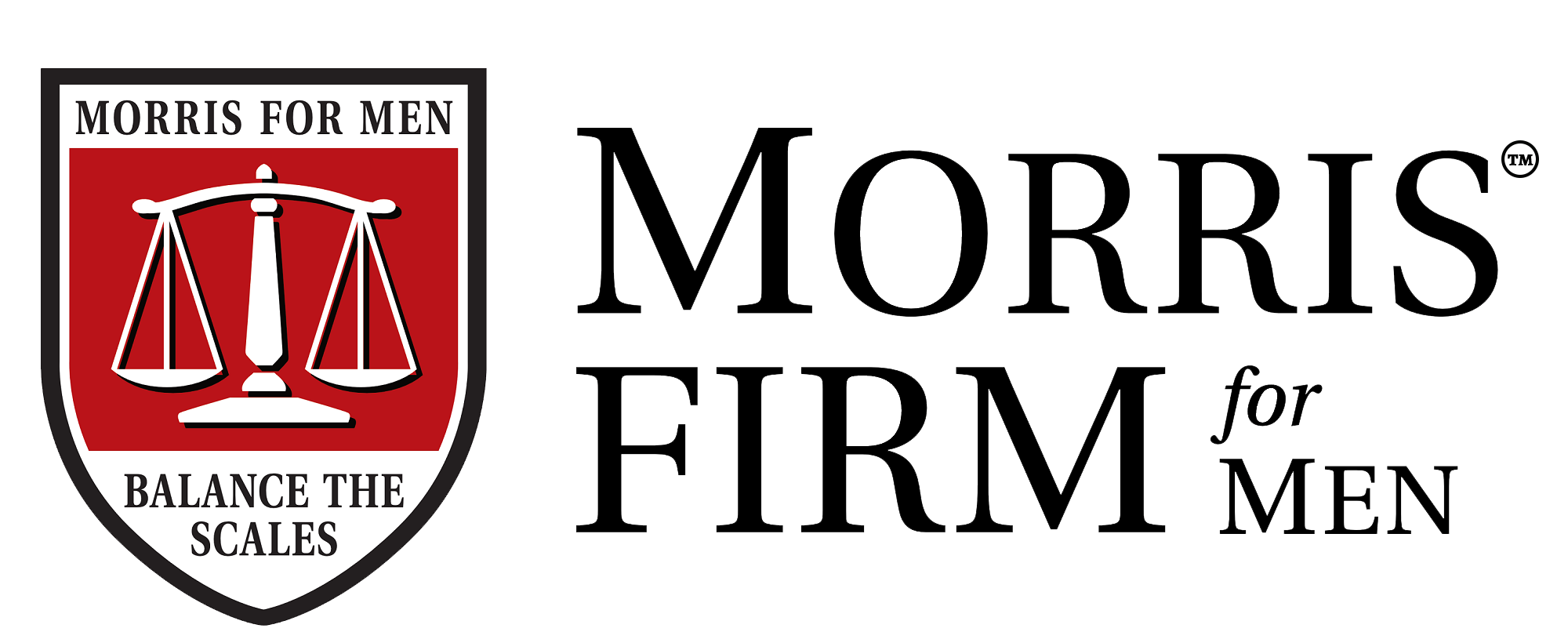If you do not know what your rights are, then how can you enforce them? As a father going through a divorce, navigating the legal system regarding visitation rights and custody rights can be overwhelming and confusing. While 90% of child custody disputes are settled without a judge’s ruling, it’s still important to understand your rights and options to ensure a fair outcome for you and your children.
With the proper legal assistance, you can fight for the time you deserve with your kids and maintain a strong relationship with them. At the Morris Firm For Men, we believe that Dads Deserve Custody Too! Just because you and your spouse are separating, does not mean that your children need you any less, or that you have to settle for every other weekend. In fact, shared custody is something that we fight for on a regularly, and share custody awards are becoming more and more common in settlement agreements and in orders of the court. But so often we see men settle for less than they deserve, because they did not know their rights. So if you want to ensure you have the best person on your side, and to protect your rights as a man, hiring a visitation attorney is a good idea.
Not sure what a child visitation lawyer does or what separates them from a divorce lawyer? That’s why we’ve compiled this article to provide you with all the information you need to navigate visitation and custody after a divorce. Whether you’re seeking legal assistance for child custody, child support, or any other related legal services, we’ve got you covered with everything you need to know.
What Are Your Visitation Rights?
Visitation rights, or parenting time, refers to the time spent with a child that doesn’t live with you. This is distinguishable from “physical custody” because visitation is usually defined as the time the “non-custodial” parent is getting. Although there is some overlap with the term custody and visitation, because they both refer to the actual physical time that you have a right to have the child physically with you. Whether in a court order or in a settlement agreement, visitation rights are the legally binding agreement or order that outlines the time, location, and duration of the visits you can have with your child after divorce. The most important point is that visitation rights enable you to actively participate in your child’s life. That’s what matters.
Best Interests of the Child
When determining visitation rights, the court always considers the child’s best interests. Your visitation schedule should be designed to promote and maintain a healthy relationship between you and your child.
The court will consider individual circumstances, such as the child’s age, health, educational needs, and emotional state, when determining the frequency and duration of your visits.
Types of Visitation
Several types of visitation are available, depending on your relationships with your child and your ex-partner. Some types of visitation include:
- Scheduled Visitation: This type of visitation is the most common, and it involves a pre-determined schedule for when you can spend time with your child.
- Reasonable Visitation: This type of visitation allows for flexibility and allows you to spend time with your child when it’s convenient for both parties. Although, we would caution that, you may be setting your self up for issues with enforceability when you do not have detailed “scheduled visitation” and merely agree to “liberal visitation” or “reasonable visitation” because these terms are so vague.
- Supervised Visitation: This type of visitation is where the person exercising the visitation is not allowed to exercise their visitation with the child without someone else present, i.e. a supervisor. Supervised visitation might be something that the other party insists on or it may be ordered by the Court where the Court believes it is necessary to ensure the child’s safety during the visitation. The supervisor of the supervised visitation could be a parent, friend, or family member, or there is also the possibility or having a paid supervisor, such as a counselor or at a supervised visitation center.
- Pendente lite visitation: This is also known as temporary visitation that is awarded while the case is pending, and prior to a final custody/visitation order.
Custody Arrangements
Custody arrangements play a significant role in determining visitation rights. A lawyer will help you navigate each. However, there are two types of custody:
- Physical custody
- Legal custody
In most cases, joint legal custody is the preferred arrangement for both parties. It allows for active participation in the child’s life, when making legal decisions for the child and receiving legal information about the child.
There are two types of physical custody:
- Sole Physical Custody (also known as primary physical custody to one parent)
- Joint Physical Custody (also known as true shared custody with both parents having equal or approximately equal time with the child.)
It is important to understand the difference between legal custody and physical custody, just as it is important to understand the difference between sole/primary physical custody and joint/shared physical custody. A good visitation/custody attorney will help you make sense of all of this to ensure the agreement works for you and the child.
The Importance of Men’s Visitation Rights
Visitation after a divorce can be a touchy subject. This is especially true for fathers fighting for their rights to see their children. It’s important to remember that men and women should receive the same legal protection and treatment, including visitation rights.
Why is this important? Children thrive with both parents in their lives. Studies show children with positive relationships with their fathers have better mental health, academic success, and fewer behavior problems.
But what happens when fathers are denied visitation rights or given limited time with their children? This can harm both the father-child relationship and the child’s development. Fathers need to have a meaningful role in their child’s upbringing, financially and emotionally.
Most importantly, fathers have a right to be a part of their child’s life. They have just as much of a right as the mother does. It’s time for men to receive fair treatment in the legal system, especially regarding something as important as visitation rights. And that’s what a visitation attorney can help you achieve.
What Does a Visitation Attorney Do?
Essentially, a men’s visitation attorney is a lawyer who specializes in family law. They deal with issues related to parenting time, the child’s welfare, and the parents’ legal rights. They can help you:
- Understand your legal rights and responsibilities as a father
- Guide you through the court process
- Advocate for your interests in child custody hearings
Moreover, visitation attorneys can assist with a variety of legal services related to divorce and child custody, including the following:
- Negotiating parenting agreements
- Helping you establish paternity
- Filing for child support
- Modifying existing custody arrangements
- Counsel you on the best course of action to take to resolve disputes with your ex-spouse (such as mediation or litigation)
Hiring a visitation attorney can be crucial in securing your visitation rights as a father and ensuring a fair and equitable outcome in your divorce proceedings. With their expertise and knowledge of the law, they can help you protect your legal rights as a parent and give you peace of mind during emotional upheaval.
Benefits of Hiring a Child Visitation Lawyer
Now that you know about your visitation rights and how a child visitation lawyer can help, it’s time to dig deeper into the benefits of hiring one. Here are some reasons fathers work with a visitation rights lawyer when divorcing with children.
Expertise in Family Law
Family law is a complex field that requires a deep understanding of various legal issues. A child visitation lawyer has the expertise and knowledge to navigate the legal system and ensure that you get fair visitation rights.
Maximize Your Visitation Time
A divorce visitation lawyer can help you maximize your visitation time with your children. They can negotiate with the other party to ensure you get enough time with your children to foster a healthy relationship. This is important to do, both while the case is pending, (pendente lite) and in a final settlement or order.
Protect Your Rights
A visitation rights lawyer can protect your rights as a father. If the other side is not allowing you to see the child prior to or after a final order, a good attorney can help ensure your visitation rights are respected, and the other party cannot restrict or deny your time with your children. Protecting men’s rights is one of the fundamental missions of the Morris Firm For Men, and one of those most important rights is the right to be in your child’s life.
Reduce Stress
Divorcing with children and fighting for visitation rights can be stressful and overwhelming. A divorce visitation lawyer can reduce stress levels by handling legal matters on your behalf, allowing you to focus on your relationship with your children, and can offer helpful advice as the divorce case is pending, that can help put you at ease by knowing whether you are doing the right things to prepare for the best possible outcome when it’s all said and done.
Work with the Morris Firm for Men
Fathers have the right to visit and spend time with their children during and after a divorce. If you’re divorcing with children, it’s crucial to understand the legalities of visitation rights and what you, as a father, are entitled to. You do not have to settle for the minimum. Remember to stay involved in your child’s life and seek legal assistance if you ever face any challenges.
Don’t hesitate to contact us for a consultation with a visitation attorney who can provide the guidance you need to protect your visitation rights and your rights to custody. We’re here to support you every step of the way. Call us today or send us a message to schedule an appointment!


